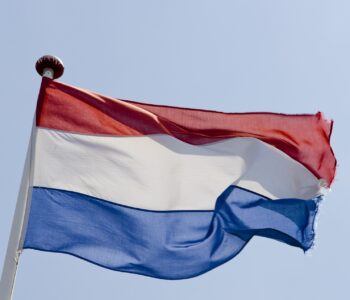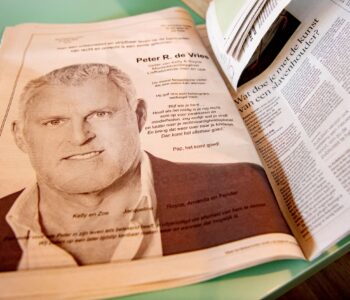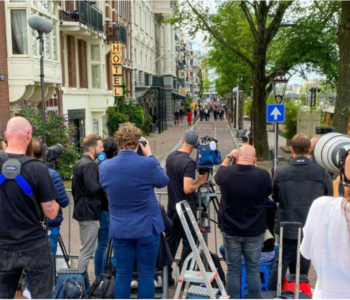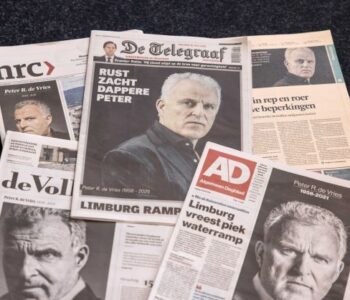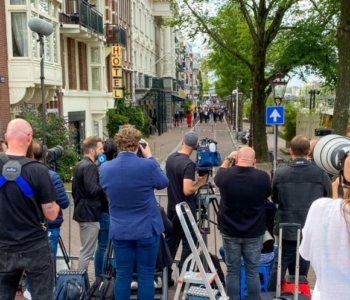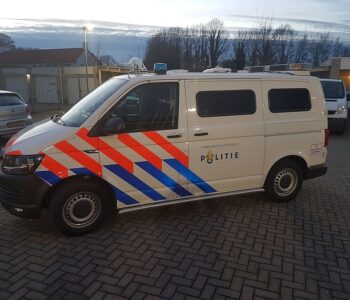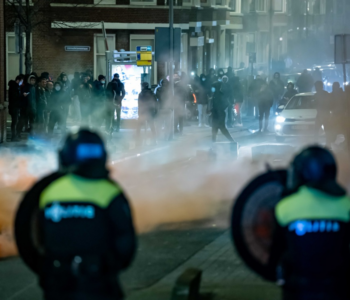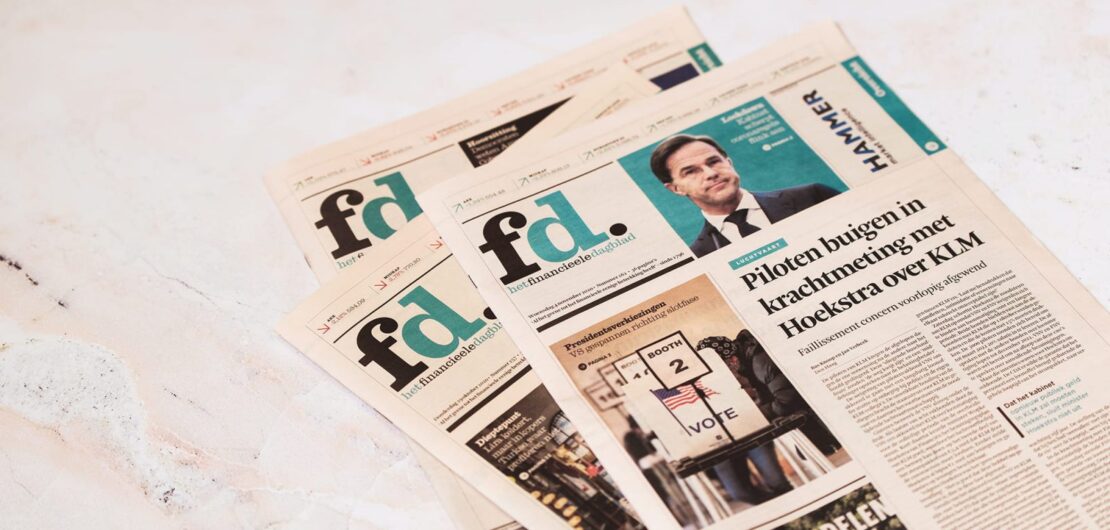 Library
Library
The Netherlands: The MFRR and the CASE deplore abusive…
The MFRR and the CASE deplore the lawsuit against Het Financieele Dagblad
The Media Freedom Rapid Response (MFRR) and the Coalition Against SLAPPs in Europe (CASE) deplore the lawsuit against Dutch daily newspaper Het Financieele Dagblad (FD) and stand in solidarity with the FD and its journalists. The case, of which the hearing will take place on 13 November 2023, is a clear attempt to silence and discourage Het Financieele Dagblad and its journalists from further reporting.
On April 6, 2023, het Financieele Dagblad (FD), a Dutch daily newspaper specialising in business and finance, received a summons from Willem Blijdorp, founder and majority shareholder of the wholesale company B&S. Blijdorp is suing the newspaper and its editor-in-chief Perry Feenstra in a civil case before the Amsterdam District Court over two articles published in November 2022 about his investments in Iranian quarries. The legal basis of the claim is a wrongful act: Blijdorp’s lawyers argue that the article violates his honour and good name, and thereby violates Article 8 of the ECHR and article 7 of the EU Charter of Fundamental Rights.
Published on November 2, 2022, the first article revealed that Blijdorp, who was vice-chairman of the B&S supervisory board, had hired nine B&S employees to advise and direct his private investment in Iranian marble. According to the newspaper, the involvement of B&S employees contradicts what the B&S executives had told other shareholders in April 2022, thereby omitting the risk that Blijdorp’s Iranian interests would violate sanctions.
A follow-up article was published on November 3, entitled “American watchdog: major shareholder B&S violates Iran sanctions”, which quotes the American non-profit organisation, United Against Nucluear Iran (UANI), describing Blijdorop’s simultaneous business relations with Iran and the United States as “a clear violation of Iran sanctions”.
The summons claim that the sole purpose of the reporting by the FD was to damage Blijdorp, and that the claims were “suggestive and partially incorrect”. Blijdorp asked for the two articles to be removed from the FD website, a correction in the print and online editions and for compensation of both material and immaterial damages to be paid.
Abusive tactics
Our organisations have closely assessed the legal claim and believe it qualifies as a Strategic Lawsuit Against Public Participation (SLAPPs): abusive litigation filed by powerful individuals aimed at silencing and intimidating legitimate watchdog journalism.
Blijdorp did not opt for summary or preliminary relief proceedings (kort geding), the common route in the Netherlands for cases legitimately aimed at limiting reputational damage following a publication, but instead started main proceedings (bodemprocedure, i.e. proceedings on the merits). These proceedings are much longer than a kort geding and will unnecessarily drive up the legal costs for Het Financieele Dagblad. Blijdorp also asked the journalists to present all their sources to the court. In addition, he claims an excessive amount of €150.000 for non-material damages, while material damages will be calculated in separate proceedings.
In a concerning development on June 20, 2023, Blijdorp filed a petition to summon witnesses, including the journalist and possible sources. Furthermore, several sources received letters from Blijdorp’s lawyers – prior to the lawsuit – requesting them to urgently clarify which information the FD provided to them before giving their testimony.
A hearing will be held at the Amsterdam Civil Court on November 13, 2023. The MFRR and CASE argue that this legal claim should be considered as a Strategic Lawsuit Against Public Participation (SLAPP) and needs to be dismissed at the earliest stage. We also reiterate our solidarity with the journalists of Het Financieele Dagblad who have already had to devote a great deal of time and resources to their defense, while trying to protect the confidentiality of their sources.
Threat to press freedom
The case against Het Financieele Dagblad highlights the threat posed to press freedom in Europe. While the European Union has traditionally been considered a beacon of press freedom, we see an alarming increase in legal intimidation through the use of SLAPPs that threatens the freedom and safety of journalists.
A draft EU Directive to protect targets of SLAPPs held high promise, but ongoing negotiations between the European Commission, the European Parliament, and the Council of the European Union, may fail to translate European values into action. A watered-down version of the directive will provide no meaningful protection for journalists, media outlets, activists and civil society organisations in Europe.
As we enter the final stages of the negotiations on the directive, this timely example again illustrates the crucial importance of a strong early dismissal mechanism, a wide definition of the notion of ‘cross-border’ and full compensation of damages. Otherwise similar cases will continue to mushroom throughout the EU, seriously weakening media freedom and the ability of journalists and media outlets to play their watchdog role, thereby undermining the public’s right to know.
This statement was coordinated by the Media Freedom Rapid Response (MFRR), a Europe-wide mechanism which tracks, monitors and responds to violations of press and media freedom in EU Member States, Candidate Countries and Ukraine.

